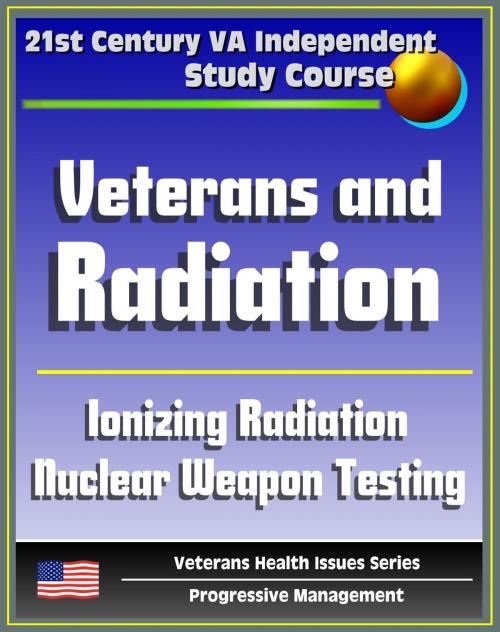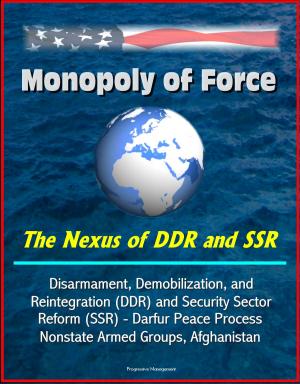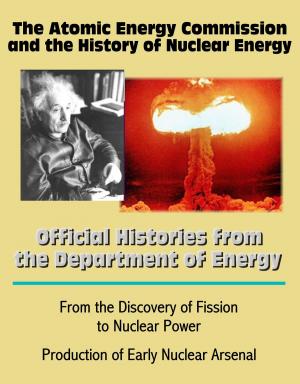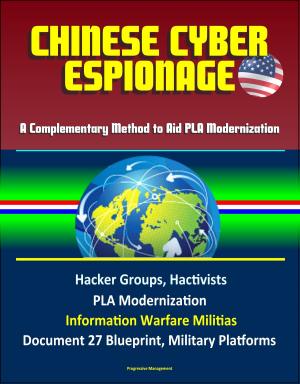21st Century VA Independent Study Course: Veterans and Radiation, Ionizing Radiation, External and Internal Radiation, Depleted Uranium (DU), Nuclear Weapon Testing, Hiroshima and Nagasaki
Nonfiction, Health & Well Being, Health, Ailments & Diseases| Author: | Progressive Management | ISBN: | 9781458124913 |
| Publisher: | Progressive Management | Publication: | February 15, 2011 |
| Imprint: | Smashwords Edition | Language: | English |
| Author: | Progressive Management |
| ISBN: | 9781458124913 |
| Publisher: | Progressive Management |
| Publication: | February 15, 2011 |
| Imprint: | Smashwords Edition |
| Language: | English |
The Veterans Administration (VA) Independent Study Course on veterans and radiation provides information about ionizing and nonionizing radiation; major types of exposures to radiation that veterans may have experienced in service and health effects possibly associated with such exposures; special programs including the VA’s Ionizing Radiation Registry Examination and Depleted Uranium programs; adjudication of radiation-related compensation claims; and radiation exposures in VA facilities. While the atomic bombing of Hiroshima and Nagasaki occurred more than 50 years ago and U.S. atmospheric nuclear weapons tests ended in 1962, many veterans who served in the Japanese occupation or who participated in atmospheric nuclear weapons tests and their families continue to be concerned that ionizing radiation (IR) has caused the veterans’ illnesses, especially cancer and also may be responsible for health problems in their offspring. Other veterans may have been exposed to IR, such as nuclear submariners, and veterans of the Gulf War and Operation Iraqi Freedom, who came into contact with depleted uranium (DU). Also, future limited conflicts may expose U.S. personnel to IR, (e.g., with increasing availability of DU on the international arms market). In addition, exposure to non-ionizing radiation (NIR) is of concern to veterans, such as those who worked with radar. Upon completing this independent program, participants should be able to: differentiate ionizing and non-ionizing radiation; identify the major types of radiation; list the major types of exposure to radiation that veterans have experienced and special VA programs available; identify average doses of ionizing radiation to which atomic veterans were exposed; identify health effects that veterans may have experienced as a result of exposure to radiation; describe health of offspring of Japanese atomic bomb survivors; utilize the VA’s Ionizing Radiation Registry Examination and Depleted Uranium programs; describe how treatment for conditions possibly related to radiation is provided; describe how radiation-related compensation claims are adjudicated; and describe the possible use of ionizing radiation by terrorists and medical response measures. As a result of this program, clinicians should be able to apply the knowledge gained to conduct more comprehensive evaluations and provide appropriate care to radiation-exposed veterans. Staff also should be able to better respond to questions and concerns of radiation-exposed veterans and their families, and assist in adjudicating their claims. * This edition includes our exclusive Guide to Leading Medical Websites. Since navigating the Internet to find additional non-governmental medical information can be confusing, we've provided this unique and helpful guide with updated links to 81 of the best sites for medical information! Built-in weblinks let you quickly check for the latest clinical updates directly from the government and the best commercial portals, news sites, reference/textbook/non-commercial portals, and health organizations. * This is a privately authored news service and educational publication of Progressive Management. Our publications synthesize official government information with original material - they are not produced by the federal government.
The Veterans Administration (VA) Independent Study Course on veterans and radiation provides information about ionizing and nonionizing radiation; major types of exposures to radiation that veterans may have experienced in service and health effects possibly associated with such exposures; special programs including the VA’s Ionizing Radiation Registry Examination and Depleted Uranium programs; adjudication of radiation-related compensation claims; and radiation exposures in VA facilities. While the atomic bombing of Hiroshima and Nagasaki occurred more than 50 years ago and U.S. atmospheric nuclear weapons tests ended in 1962, many veterans who served in the Japanese occupation or who participated in atmospheric nuclear weapons tests and their families continue to be concerned that ionizing radiation (IR) has caused the veterans’ illnesses, especially cancer and also may be responsible for health problems in their offspring. Other veterans may have been exposed to IR, such as nuclear submariners, and veterans of the Gulf War and Operation Iraqi Freedom, who came into contact with depleted uranium (DU). Also, future limited conflicts may expose U.S. personnel to IR, (e.g., with increasing availability of DU on the international arms market). In addition, exposure to non-ionizing radiation (NIR) is of concern to veterans, such as those who worked with radar. Upon completing this independent program, participants should be able to: differentiate ionizing and non-ionizing radiation; identify the major types of radiation; list the major types of exposure to radiation that veterans have experienced and special VA programs available; identify average doses of ionizing radiation to which atomic veterans were exposed; identify health effects that veterans may have experienced as a result of exposure to radiation; describe health of offspring of Japanese atomic bomb survivors; utilize the VA’s Ionizing Radiation Registry Examination and Depleted Uranium programs; describe how treatment for conditions possibly related to radiation is provided; describe how radiation-related compensation claims are adjudicated; and describe the possible use of ionizing radiation by terrorists and medical response measures. As a result of this program, clinicians should be able to apply the knowledge gained to conduct more comprehensive evaluations and provide appropriate care to radiation-exposed veterans. Staff also should be able to better respond to questions and concerns of radiation-exposed veterans and their families, and assist in adjudicating their claims. * This edition includes our exclusive Guide to Leading Medical Websites. Since navigating the Internet to find additional non-governmental medical information can be confusing, we've provided this unique and helpful guide with updated links to 81 of the best sites for medical information! Built-in weblinks let you quickly check for the latest clinical updates directly from the government and the best commercial portals, news sites, reference/textbook/non-commercial portals, and health organizations. * This is a privately authored news service and educational publication of Progressive Management. Our publications synthesize official government information with original material - they are not produced by the federal government.















